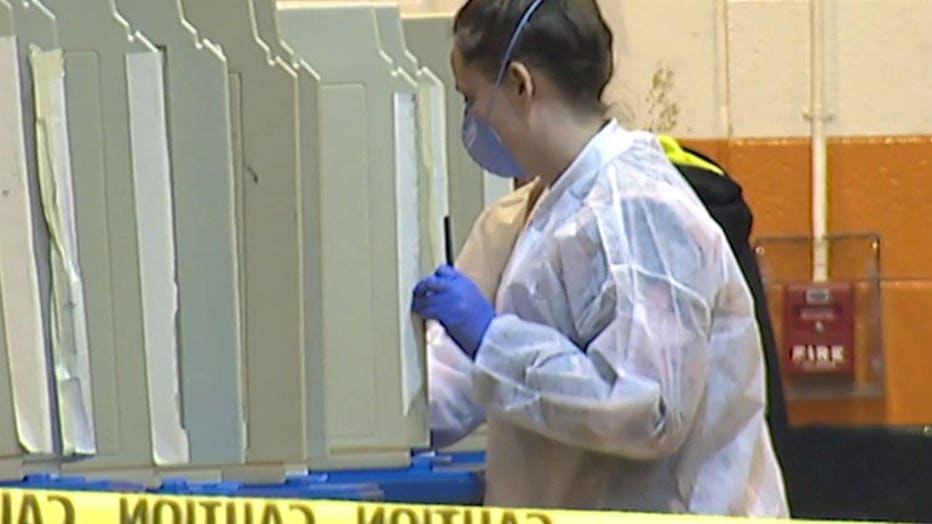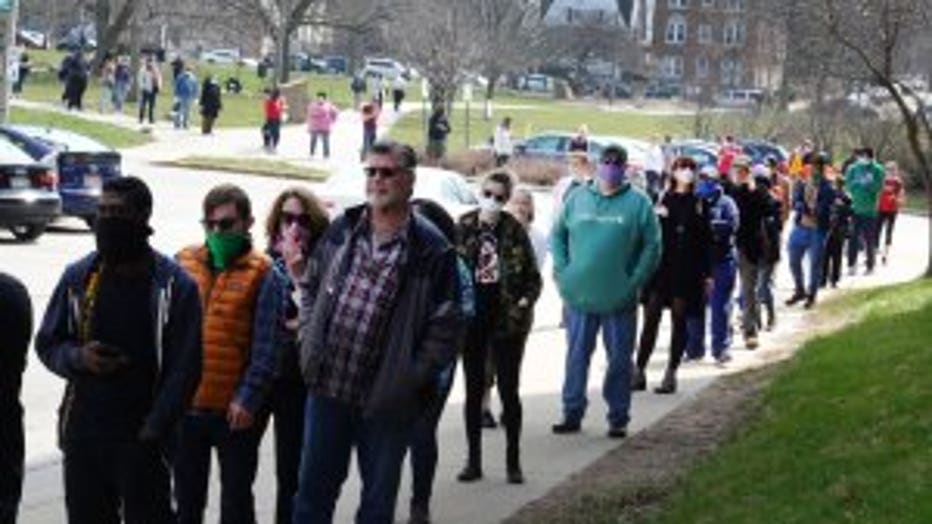MHD: 7 patients may have contracted COVID-19 'through election-related activities'
MILWAUKEE -- Nearly two weeks out from the April 7 spring election in Wisconsin, Milwaukee health officials on Monday, April 20 shared some preliminary information related to the impact of the coronavirus.
Public health experts, elected officials, poll workers and many voters pushed to delay the election. After the Republican-controlled Legislature refused to cancel in-person voting, Democratic Gov. Tony Evers issued an executive order to do so. But the state Supreme Court, less than 24 hours before voting was to begin, blocked the order. Voters who didn't get absentee ballots were forced to choose between voting in person or staying at home to avoid possible exposure to the coronavirus. Thousands waited in line in Milwaukee, and long waits were reported in Green Bay. Voters and poll workers wore masks and gloves. Volunteers sat behind Plexiglass shields as they handed voters their ballots.


MILWAUKEE, WISCONSIN - APRIL 07: Voters wait in line at a polling place at Riverside University High School on April 07, 2020 in Milwaukee, Wisconsin. The voters waited sometimes more than two hours at the school, one of the few polling places open i
As of Monday, with data still coming in, Milwaukee Health Commissioner Jeanette Kowalik said data from just 30% of the new cases from that time period shows some instances of COVID-19 can be associated with the election.
"As of today, we've identified seven individuals that contracted, at least it appears, COVID-19 through election-related activities," said Kowalik.
Health officials stressed an investigation is ongoing, with the Milwaukee Health Department looking at a number of factors. Kowalik said they hope to have even more data by week's end.
Meanwhile, state health officials said Monday they have not seen the same impact.
"We have not seen data that suggests that we've seen a a large uptick from in-person voting, but we continue, with all our work around the state, to be focused on places that might be outbreaks to understand what the root of those might be," said Wisconsin Department of Health Services Secretary-designee Andrea Palm.
You'll recall, if someone's infected with COVID-19, it can take roughly two weeks for symptoms to show, and health officials also map other places that person went during that time, so any data associated with the election takes time to compile.

